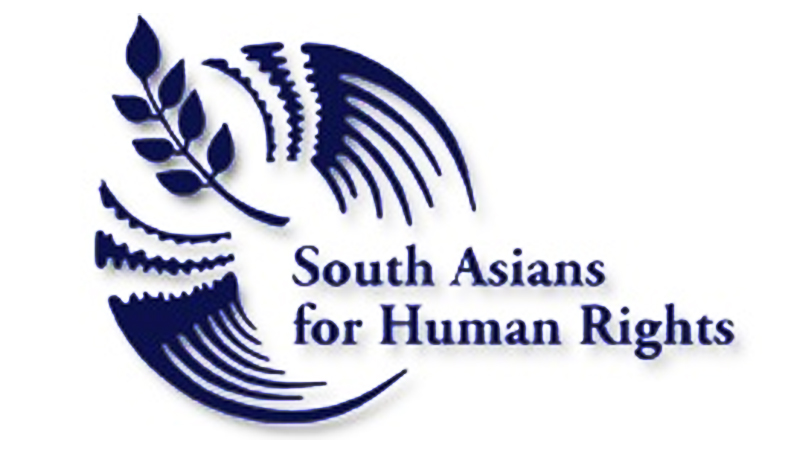HRCP launches Balochistan fact-finding mission’s report
Lahore, October 13, 2013: The Human Rights Commission of Pakistan (HRCP) on Sunday launched the report of a fact-finding mission to Balochitsan.
Apart from the overall human rights situation in the province, the mission looked at a terrorist attack on students of a women’s university in Quetta and the subsequent attack at a hospital where the casualties were taken, and the bombing at Quaid-e-Azam Residency in Ziarat. It also held meetings with representatives of the new political administration and a cross section of society amid high hopes that the government would have the authority, commitment, representative character and sincerity of purpose to deal with the problems that had the province had long suffered from.
On the occasion of the report launch, the HRCP Executive Council expressed grave concern over reports of poor relief in Awaran and lack of access and demanded that the situation must be remedied without delay.
Titled “Balochistan: Giving the people a chance”, the report is available online at: http://www.hrcp-web.org/
The key findings of the mission’s report were:
1. Despite threats from insurgents asking the people to stay away from the elections, even the political parties that had boycotted the 2008 elections had contested the May 2013 elections and the people had voted in those elections, clearly giving the verdict on the manner in which they wanted to be governed. It was also a resounding vote for democracy and ending the bloodshed in the province. The coalition government that emerged after the elections appeared to have considerable goodwill and support from the people that would be vital in extricating Balochistan out of the challenges that have long hounded the province.
2. There was near unanimity among all interlocutors that HRCP met that formation of the new government was a sign of hope that the province’s problems would be addressed. The government formation was considered to be a positive step which could lead to an opportunity for ending grave human rights violations in the province. However, the same interlocutors warned that they did not see many signs of a change in policy within the security and intelligence agencies as the kill-and-dump policy continue.
3. The fact finding received conflicting reports that the pattern of terrorist attacks in the recent past indicated some operational coordination between sectarian militant groups and Baloch insurgents. HRCP was not in a position to verify the claim but demanded that such allegations must be taken seriously, investigated fully and if any evidence of such collaboration was found that must be made public.
4. All groups and individuals as well as political elements that the HRCP mission met welcomed the installation of the new democratic government and were keen that this opportunity should not be lost and the new government should be strengthened so that it could face the multiple challenges in Balochistan. The federal government was expected to fully back the provincial government in its developmental works in the province and in extending its writ over the province as well as establishing civilian supremacy over the military agencies.
5. The law and order in Balochistan remained dismal. Citizens were living in perpetual fear. They had little security of life and indignity at the hands of the security forces is routine. Kidnapping for ransom remained unchecked and the citizens felt resigned to pay the money for the recovery of abducted relatives. The abductors were almost never traced. Religious minorities were particularly vulnerable. Civil society organizations had abandoned their work in the conflict-hit parts of the province. Women were particularly fearful and live in perpetual intimidation by extremist forces. Sectarian militant groups operated with impunity and consider reprisals against the state their right if action was taken against them by the law enforcement for carrying out terrorist activities.
Recommendations
The HRCP mission emphasised that the recommendations made by earlier HRCP missions to Balochistan remained valid but largely unimplemented. It reiterated all those recommendations and hoped that with the change of government in the centre and the province the recommendations would receive more serious consideration and would be implemented. Additionally, the mission made the following recommendations at the conclusion of its visit to Balochistan:
1. HRCP calls upon the security forces and intelligence agencies to operate within the ambit of the Constitution and the law. There are credible reports of continued serious human rights violations, including enforced disappearance of people, arbitrary arrests, torture and extrajudicial killings. The security forces and the intelligence agencies persisting with their illegal actions would hurt the democratic process and further alienate the people. HRCP demands that the administrative heads of the FC and the intelligence agencies should give a stern warning to their forces to desist from violating human rights and that if any breach occurred, the perpetrators must be brought to justice.
2. HRCP is of the considered opinion that one of the biggest hurdles in normalization of the situation in Balochistan is the abhorrent practice of enforced disappearance and dumping of bodies of victims of disappearance. HRCP calls upon the authorities to immediately ensure that all victims of disappearance are accounted for without delay. The Commission also urges that all the recommendations made by the UN Working Group on Enforced or Involuntary Disappearances that had visited Pakistan in September 2012 must be implemented.
3. Standard operating procedures (SOPs) should be developed and publicized on rules of engagement of the security forces and the intelligence agencies operating in the province.
4. The chief minister should have the power to write the annual confidential report (ACR) regarding the performance of the Frontier Corps (FC) chief in Balochistan, and indeed of heads of all security agencies tasked with ensuring preservation of law and order in the province.
5. Key development projects in Balochistan, including the completion of main highways that has been in the pipeline for years, must be taken up without any further delay and completed at the earliest.
6. HRCP is convinced that the people of Balochistan fully support the restoration of peace and political stability in the province. Baloch insurgents must respect the wishes of the people and cease their attacks on innocent civilians. While HRCP is fully aware of the risks to Baloch nationalists by state actors, it nevertheless expects them to denounce violence perpetuated by Baloch insurgent groups. There is an opportunity for Baloch insurgents to embrace the new realities that are being presented through the democratic process. A weakening of this process will only strengthen the hands of undemocratic forces. As such it could lead to an escalation of violence towards political activists in Balochistan. HRCP believes that this opportunity should be seized for a positive step forward and urges the Baloch insurgents to cease all violence for at least a brief time to give peace a chance. This would give the newly elected government an opportunity to confront the actors within the state who commit human rights violations on the pretext of furthering national security. During this period, the government could put up a monitoring mechanism so that human rights violations by state agents are detected, investigated and the perpetrators punished. This could lead to reciprocity for peace, rather than reprisal where eventually ordinary people have to pay the price with their lives, liberty and their right to peaceful existence.
7. HRCP urges the government of Balochistan to appoint a human rights adviser to the Chief Minister with the mandate to improve the full range of human rights of the citizens of Balochistan. This would assist the provincial government in monitoring, implementing and improving the rights of the people, including their economic, social and cultural rights. The human rights advisor should also be mandated to raise resources from international donors to make these rights a reality. Although Balochistan is as rich in its culture as it is in mineral resources there is a serious dearth of cultural activity. The latter should also be used for preservation of its language, literature, heritage, handicrafts and music.
8. As Balochistan is undergoing a period of serious crises in terms of erosion of civil and political rights, the government is also urged to set up a provincial human rights commission to monitor and address violations of civil and political rights of the population. A conventional intergovernmental human rights body will not be so effective. Therefore, HRCP recommends that a cross-party parliamentary body should nominate a person of high integrity to be appointed as the chief human rights commissioner (CHRC). The commissioner, in turn, with the approval of the Chief Minister should appoint commissioners for each district of Balochistan. The province’s multi-ethnic character and vast landscape will make such a model necessary. It will bring the spotlight on the need to respect the human rights of the people. The commission should also focus on prevention, early warnings and reforms. Its annual report should be presented to the provincial assembly. In order to make it financially feasible, all commissioners, except the CHRC, should work voluntarily and be compensated for travel and stay during quarterly meeting of the commission at Quetta to be chaired by the CHRC. The commissioners should, however, be provided with one assistant and housed in an already operational government facility. The government could also consider giving the commissioners powers of justices of peace.
9. The policing system is in urgent need of reform. There is an urgent need to lift the morale of the police force—which has for a number of reasons grown reluctant to go after militant extremists and even petty criminals—and to offer all necessary support and facilities to the force. Support from their superiors in all lawful actions, policing responsibilities and in dealing with all threats related to their professional duties is vital to turn policemen fearful for their own safety into a force that strives to confront crime and ensure law and order for the citizens. A police academy should be built for the training of police personnel and a forensic lab built in Balochistan. The police needs to get the requisite support from cellular phone companies and National Database Registration Authority (NADRA) to track down criminals. The civilian intelligence gathering capacity needs to be considerably enhanced.
10. It is high time to do away with the distinction between ‘A’ and ‘B’ areas in Balochistan. The government should set up a committee of parliamentarians assisted by experts on the issue to gradually phase out the distinctions between ‘A’ and ‘B’ areas with a view to set up law enforcement that can best serve the needs of the people.
11. The government should make a blueprint whereby the FC can gradually be recalled from the province as active policing by the FC has been counterproductive and has created vested interests within the institution itself and deepened resentment among the population in the province.
12. HRCP urges all religious minority groups to set up a common platform to raise their demands and carry out other joint actions to protect the rights of religious minorities.
13. HRCP hopes and expects the media to play its role in highlighting events and developments taking place in Balochistan and give appropriate coverage to human rights, governance and other issues.
14. Efforts must be redoubled to check the free flow of weapons in the province. The provincial capital, Quetta, must be made a weapons-free zone in particular. Appropriate deterrents, with all due process guarantees, should be pursued to discourage dealings in weapons. Steps by the government should be aimed at giving the people the confidence that they do not need to keep weapons to keep themselves safe and the government’s action should demonstrate that it is able and willing to fulfil that basic obligation for its citizens.
15. The customs duty on trade between Pakistan and Afghanistan should be rationalized in order to legalise trade and discourage the pervasive smuggling of goods.
16. Balochistan suffers also on account of isolation, where networks for communication with the rest of the country and within the province itself hardly exist. HRCP strongly suggests that the federal government supports the provincial government in building communication networks within the province and connect it to other parts of the country as well.
17. It is unfortunate that it is nearing a decade since a large number of residents who were displaced from the conflict-hit parts of Balochistan remain uprooted. A serious effort needs to be made for the return of all IDPs in Balochistan, particularly in Dera Bugti, as the abject neglect of ending their plight itself forms a human rights violation.
18. HRCP believes that talks should be initiated with Baloch insurgents both within and outside the country without compromising on extending impunity for causing grave human rights violations by individuals among the insurgents. HRCP believes that a balance has to be retained between justice and peace.
Zohra Yusuf
Chairperson
Category: English






